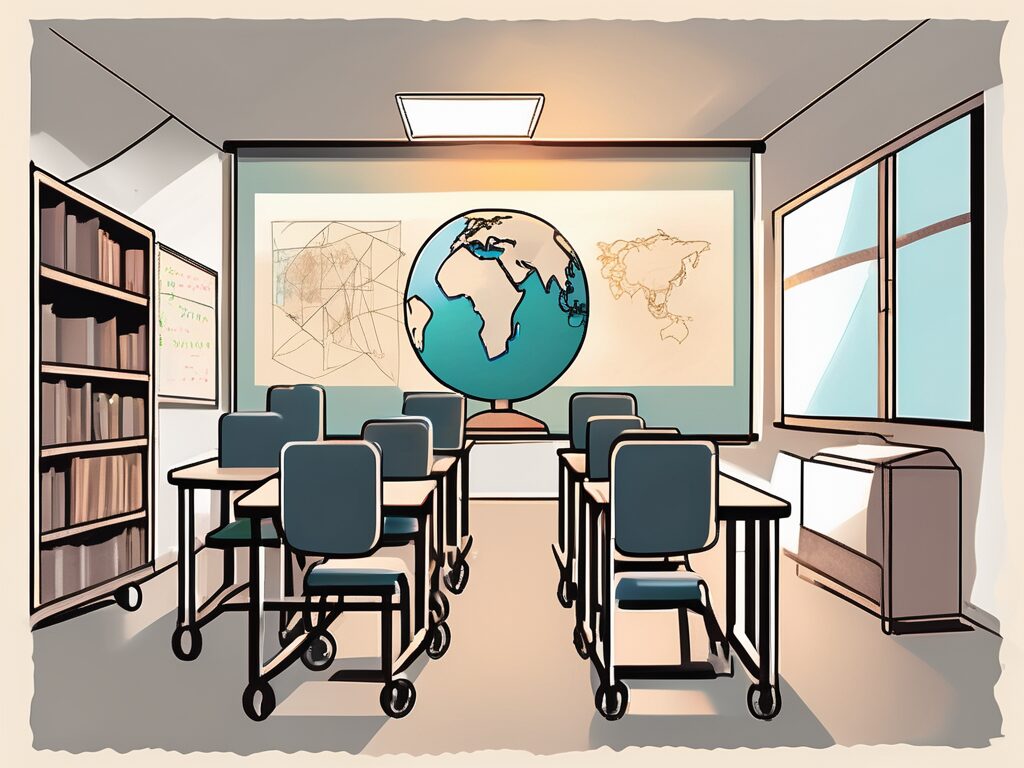Taiwan, a small island nation located in East Asia, is renowned for its robust education system. However, like any other education system worldwide, it faces its unique set of challenges. This article aims to delve into the various obstacles that educators and learners encounter in Taiwan’s educational landscape. From language barriers to cultural differences, we’ll explore the myriad issues that affect teaching and learning in this vibrant Asian country.
Language Barriers
The Challenge of English Proficiency
One of the most significant challenges in Taiwan’s education system is the proficiency in English. Despite the government’s efforts to promote English as a second language, many students still struggle with it. This is particularly evident in rural areas where access to quality English education is limited. The lack of exposure to native English speakers also contributes to this problem.
For teachers, the challenge lies in effectively teaching English to students who have limited prior exposure to the language. This often requires innovative teaching methods and a lot of patience. However, the rewards of overcoming this challenge are immense, as English proficiency opens up a world of opportunities for Taiwanese students.
The Influence of Mandarin Chinese
Another language-related challenge is the dominance of Mandarin Chinese. As the official language of Taiwan, Mandarin Chinese is the medium of instruction in most schools. This can pose difficulties for students from minority language backgrounds, such as those who speak Hakka or indigenous languages at home.
Teachers also face the challenge of making their lessons accessible to all students, regardless of their mother tongue. This often involves incorporating elements of different languages into their teaching, which can be a complex and time-consuming task.
Cultural Differences
Eastern vs Western Teaching Methods
Another challenge in Taiwan’s education system is the clash between Eastern and Western teaching methods. Traditional Taiwanese teaching methods often involve rote learning and memorisation, which contrasts with the more interactive and student-centred approaches favoured in Western countries.
For teachers, especially those from Western backgrounds, this can be a significant adjustment. They may find it difficult to engage students who are used to a more passive learning style. On the other hand, students may struggle to adapt to more interactive teaching methods if they have been educated in a traditional Taiwanese style.
High Pressure and Competition
The culture of high pressure and competition in Taiwan’s education system is another significant challenge. From a young age, students are pushed to excel acadically, often at the expense of their mental health and well-being. This pressure can lead to stress, anxiety, and burnout, which can negatively impact students’ learning.
For teachers, managing this pressure and fostering a healthy learning environment can be a daunting task. They must balance the need for academic excellence with the importance of student well-being, which is no easy feat in a system that often prioritises the former over the latter.
Resource Limitations
Urban vs Rural Education
Resource limitations are another significant challenge in Taiwan’s education system. There is a stark contrast between urban and rural education, with schools in urban areas often having access to more resources and better facilities. This can lead to disparities in educational outcomes, with students in rural areas often lagging behind their urban counterparts.
For teachers in rural areas, this can be a significant challenge. They may lack the resources and support they need to provide a high-quality education for their students. This often requires them to be resourceful and innovative, making the most of what they have to ensure their students receive the best education possible.
Teacher Shortages
Teacher shortages are another issue that affects Taiwan’s education system. This is particularly true in rural areas, where it can be difficult to attract and retain qualified teachers. This can lead to larger class sizes and a heavier workload for existing teachers, which can negatively impact the quality of education.
Addressing this issue requires a multi-faceted approach, including improving working conditions for teachers, offering incentives for teaching in rural areas, and investing in teacher training and professional development.
Conclusion
While Taiwan’s education system is highly regarded, it is not without its challenges. From language barriers to cultural differences and resource limitations, there are many obstacles that educators and learners must overcome. However, with determination, innovation, and a commitment to continuous improvement, these challenges can be turned into opportunities for growth and learning.
As we move forward, it’s crucial that we continue to explore and address these issues, ensuring that all students in Taiwan have access to a high-quality education that prepares them for the future. After all, education is not just about academic achievement; it’s about equipping students with the skills and knowledge they need to navigate the world and make a positive impact.
Empower Your Teaching Career with IPGCE
Understanding the challenges highlighted in Taiwan’s educational system underscores the need for a robust qualification that can bridge gaps and propel educators forward. IPGCE offers a comprehensive solution that not only enhances qualifications but also fosters career progression, connects you to a global network of professionals, and deepens your understanding of international curricula. Embrace the opportunity to balance professional development with your current commitments through our flexible online study options. Join the UK’s #1 Teacher Training Course today and transform the challenges into milestones in your teaching journey.

